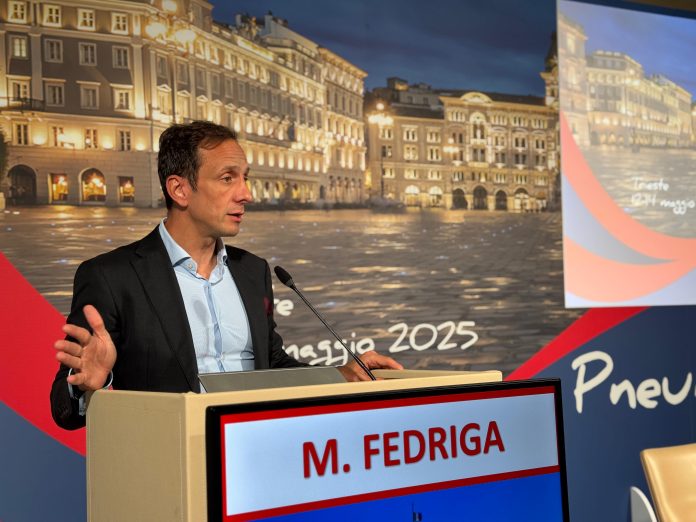
by InTrieste
Speaking at a major pulmonology conference in Trieste on Monday, Massimiliano Fedriga, governor of the Friuli Venezia Giulia region, emphasized the need for targeted efforts to address staffing shortages in Italy’s healthcare system, while reaffirming the importance of integrating scientific research into clinical practice.
Addressing a room of healthcare professionals at the Savoia Excelsior Palace during the “PneumoTrieste2025” congress, Fedriga said that while Italy is not expected to face a shortage of medical graduates, critical gaps persist in certain specializations, notably pulmonology and emergency medicine. In contrast, the nursing sector continues to face significant shortages.
“There are many open issues between the Regions and the Ministry of Health,” Fedriga said. “We will need to incentivize certain specializations. There will continue to be difficulties in some areas.”
The regional leader also reiterated the necessity of reforming Italy’s primary care model. He called for stronger collaboration with general practitioners and their unions, noting that demographic and social shifts—particularly the increase in chronic illnesses—require new approaches to care delivery.
“The current system no longer meets the growing needs of the population,” he said, adding that past failures to make timely decisions have led to many of today’s healthcare challenges. “These complex issues cannot be solved through oversimplification or political exploitation.”
Despite systemic difficulties, Fedriga praised Italy’s and Friuli Venezia Giulia’s performance in acute care, calling it a European benchmark. He also underlined the strategic value of collaboration between public healthcare and scientific research.
“University hospitals are engines of translational research and bedside innovation,” Fedriga said, encouraging a broader integration of research practices across the healthcare system, from major hospital hubs to community-based services.
This synergy between care and research, he argued, enhances treatment quality across the board and fosters a culture of innovation among healthcare workers. The regional president praised the congress as an example of this vision in action, thanking its scientific coordinator, Professor Marco Confalonieri.
“The prestige of this event confirms the excellence of Trieste’s medical community,” Fedriga said, citing its balance of scientific rigor, innovation, and high-level training.
Running through May 14, the PneumoTrieste2025 conference addresses a wide range of topics in respiratory medicine, including chronic respiratory diseases like severe asthma and interstitial lung diseases, reflecting the growing complexity of pulmonary care in Europe and beyond.




























